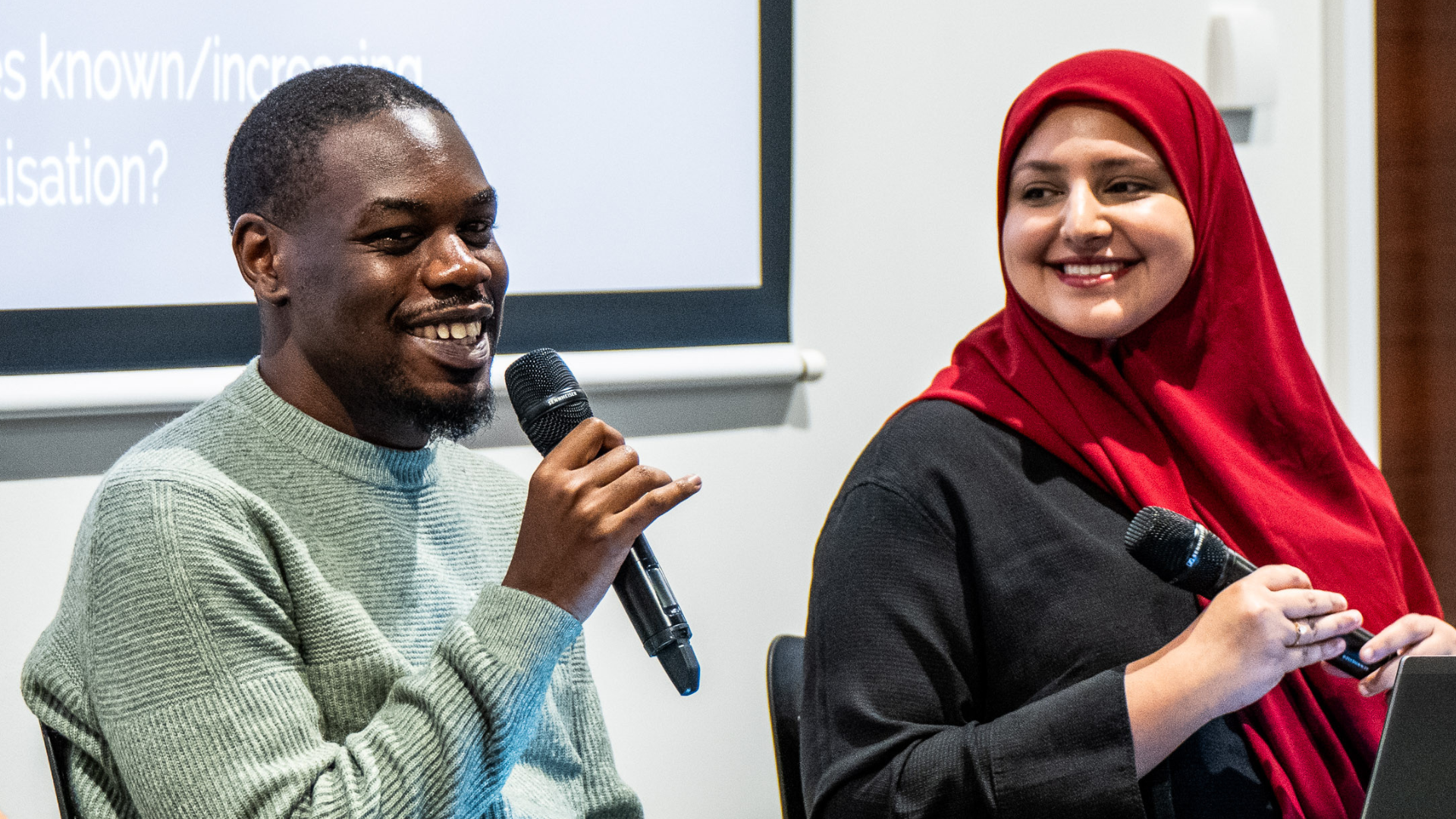
Reflecting on the Kinship Care Conference 2025: Developing a kinship local offer
Attending a conference entails taking a full day out of a busy schedule, so it is important that content is relevant, thought provoking and stimulating. This year’s conference focused on the kinship local offer with the intention of providing practical takeaways for delegates. The feedback we received following our second kinship conference on 13 October indicates we, successfully, achieved this.
“The conference was timely and highly informative, helping me as a frontline manager of a kinship care team to clearly prioritise key issues and develop an achievable action plan. I felt very positive and empowered by this Conference…I would certainly recommend that my senior leadership attend - they would get so much out of this.”
The day had a packed agenda of speakers, panel discussion, workshops and the opportunity to see three local authorities ‘Pitching Practice’ during the breaks as well as time and space for people to network, share ideas and make connections.
Opening the conference, Augusta Itua and Frances Edwards (Legal Consultants for CoramBAAF and Family Rights Group respectively) grounded delegates with the requirement for local authorities to have a kinship local offer, highlighting the fact that the ‘courts have said that agencies ‘must have regard’ to statutory guidance. This means they should follow it, unless there is good reason not to (R v Islington LBC ex p Rixon [1998] 1 CCLR 119).’ Local authorities do need to develop a kinship local offer and this should involve co-design with kinship carers, parents and local communities, as explored in Families in Harmony's afternoon workshop which asked participants to consider how community partnerships can help develop a kinship local offer.
Three parent ambassadors from Pause shared experiences of their children living in and returning from kinship arrangements and hearing directly from parents was a privilege. It was a salutary reminder of the importance of parents’ involvement in their children’s lives, when safe and appropriate, either as an ongoing relationship or reunification if circumstances are right. Parents’ needs should be considered within the local offer, whether this is continued support, mediation or family group decision making, and not just during care proceedings but into the future as the child’s, parents’ and kinship carers’ needs change and evolve.
Emanuel Onapa (Multimedia Journalist and External Affairs and Campaigns Manager for Hackney and Kinship Carer Expert by Experience) spoke positively about his role in the Raised by relatives research which was presented by Dr Priya Tah (Rees Centre, University of Oxford) and Anam Raja (Research Manager, Kinship) who set out their call to action for local authorities: the need for a community champions model to make information for kinship carers accessible, to support kinship carers to find a suitable home, to provide all kinship carers with a point of contact in their local authority and to improve social work education and training to better support kinship carers.
Delegates were struck by the different perspectives of the members of the panel during their discussion about the importance of maintaining relationships and connections, and what support can be effective. We heard from a parent, kinship carer, young person who had grown up in a kinship family, researcher focusing on the child’s voice, local authority manager and a specialist advisor on the overseas perspective.
Foundations delivered a workshop on the learning from 11 local authorities following the implementation of the Kinship Care Practice Guide and highlighted the value of learning from one another. This was also a common theme in the Form K (Kinship Care Assessment) workshop delivered by CoramBAAF, hearing about the different stages local authorities are at in their implementation and the challenges of change for both social workers and fostering panels, but also the overall positive changes that Form K has introduced to kinship assessment.
Three local authorities, Achieving for Children, Somerset and Plymouth, were able to share their practice in kinship support in the new Pitching Practice area that was busy through each of the breaks with opportunity for discussion and sharing ideas. This again highlighted the importance of events like this in supporting peer-to-peer learning
Jahnine Davis, National Kinship Ambassador, closed the day with reflections on her first year in post and what she has heard from local authorities around England. She has been impressed by commitment to children remaining in their family network, in-house provision of mental health support to children, and the focus on family relationships and whole family support. As many of us do, she recognises the need for priority housing for kinship carers and the emotional impact that becoming a kinship carer has on the whole family and relationships. Jahnine acknowledged the complexity of kinship care and all that is involved, including assessment, disparity in support and the need for a multidisciplinary approach to the kinship local offer. Not for the first time during the day , delegates were asked to think about kinship care not just as a permanence option for children, but how we can think about reunification and make plans for children and families that respond to changing needs and circumstances.
The conference was also the springboard for CoramBAAF’s Community of Practice for local authority managers who have responsibility for developing the kinship local offer. This will be a space over the next 6 – 9 months for those practitioners to come together and share ideas, no matter what stage of development their local offer is at. The discussions and networking during the day highlighted the importance of this continued shared learning, all with the aim of ultimately providing excellent support to kinship families and the children they care for.
The first Community of Practice meeting will be held on 18 November and you can sign up here.
Thank you to all the those who joined us for this year’s conference. We hope to see you next year!
Clare Seth, Kinship Consultant, CoramBAAF.
